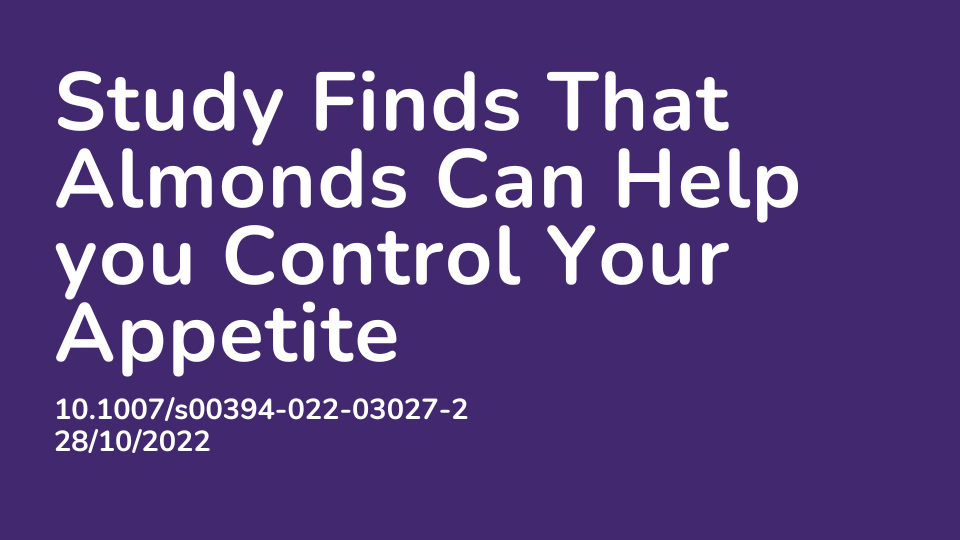Summary:
The researchers of this paper examined the role of almonds in an individual’s appetite throughout the day and found that 30-50 grams could help reduce the number of total calories consumed each day. In Australia, almost 13 million people or overweight or obese and these conditions are linked to increased likelihood of a large number of other comorbidities such as diabetes, cardiovascular disease and some cancers. The research looked at the hormones involved in appetite regulation and how almonds specifically contribute to controlling appetite. Nuts were also compared to carbohydrate rich foods and still showed to be superior at controlling appetite, most likely due to their low glycaemic load, high fiber content and poly-unsaturated fatty acid content.
Abstract:
Purpose: Early satiety has been identified as one of the mechanisms that may explain the beneficial effects of nuts for reducing obesity. This study compared postprandial changes in appetite-regulating hormones and self-reported appetite ratings after consuming almonds (AL, 15% of energy requirement) or an isocaloric carbohydrate-rich snack bar (SB). Methods: This is a sub-analysis of baseline assessments of a larger parallel-arm randomised controlled trial in overweight and obese (Body Mass Index 27.5-34.9 kg/m2) adults (25-65 years). After an overnight fast, 140 participants consumed a randomly allocated snack (AL [n = 68] or SB [n = 72]). Appetite-regulating hormones and self-reported appetite sensations, measured using visual analogue scales, were assessed immediately before snack food consumption, and at 30, 60, 90 and 120 min following snack consumption. A sub-set of participants (AL, n = 49; SB, n = 48) then consumed a meal challenge buffet ad libitum to assess subsequent energy intake. An additional appetite rating assessment was administered post buffet at 150 min. Results: Postprandial C-peptide area under the curve (AUC) response was 47% smaller with AL compared to SB (p < 0.001). Glucose-dependent insulinotropic polypeptide, glucagon and pancreatic polypeptide AUC responses were larger with AL compared to SB (18%, p = 0.005; 39% p < 0.001; 45% p < 0.001 respectively). Cholecystokinin, ghrelin, glucagon-like peptide-1, leptin and polypeptide YY AUCs were not different between groups. Self-reported appetite ratings and energy intake following the buffet did not differ between groups. Conclusion: More favourable appetite-regulating hormone responses to AL did not translate into better self-reported appetite or reduced short-term energy consumption. Future studies should investigate implications for longer term appetite regulation.
Article Publication Date: 28/10/2022
DOI: 10.1007/s00394-022-03027-2



